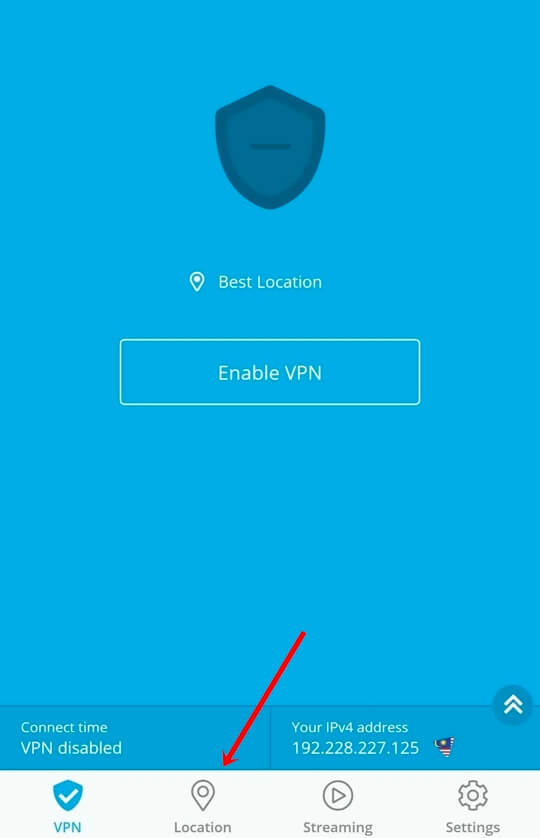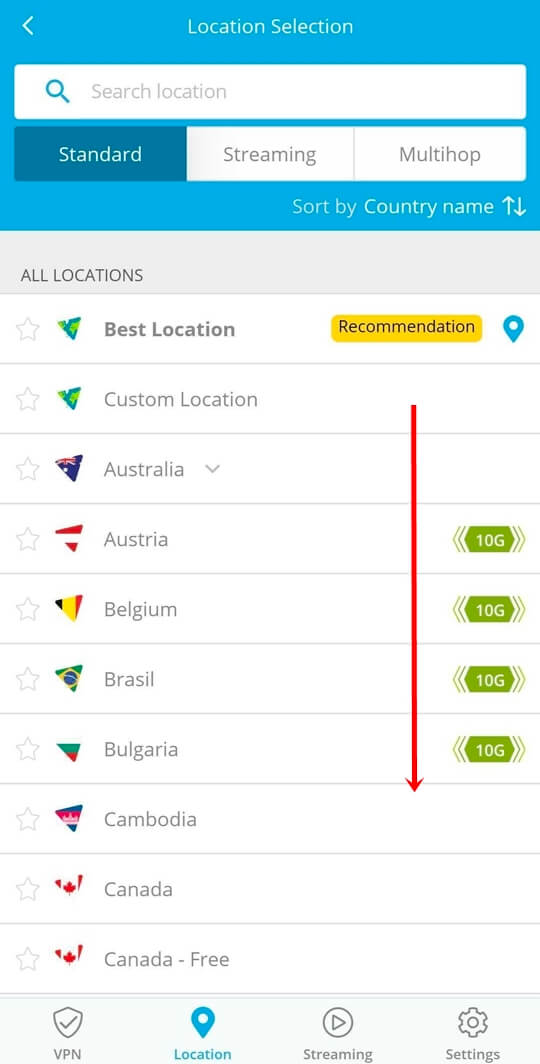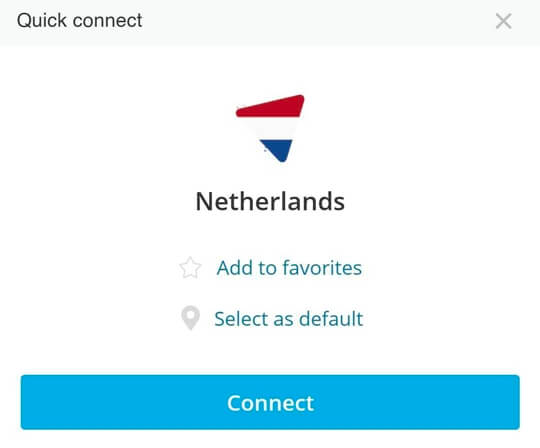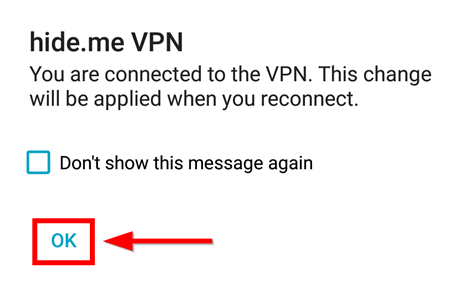Hide.me for Android Does Not Connect
Last modified: June 22, 2022
If you’re having problems connecting to our service on your Android device, please first try connecting to a different VPN server location and if that didn’t work, try connecting via alternative VPN protocol(s).
Connecting to a different VPN server location.
To change the VPN server location, please ensure you’ve disconnected from the existing connection first. To do this, simply tap on the Disable VPN button.
Once disconnected, tap on the Location button at the bottom of our app.

Next, from the Server Selection screen select your desired location.

Once you’ve selected your desired location, tap on Connect.
Note: If you want the connection to be the default, please tap on Select as default. This way, whenever you Enable the VPN, it will be connected to your preferred server location.

If you see the message below, tap on OK.

Connecting via alternative VPN protocol(s).
In the hide.me Android VPN Settings, you can choose between Automatic, IKEv2, IKEv2 – Alternative Configuration, OpenVPN UDP, OpenVPN TCP and Wireguard VPN protocols.
To connect with a different VPN protocol, please follow the instructions at this link here.
Note: Please ensure the VPN is disconnected when you’re changing the VPN protocol(s).
If you’re still having problems connecting using hide.me client app, you have the option of using the OpenVPN VPN protocol standalone client app by following the instruction at the link below:
Note: For our Free users, using OpenVPN is only available if you’re using our VPN client app. However, if you wish to use a third-party OpenVPN client with our service, you will need to upgrade to our paid service. Upon doing so, you will get the option to download the necessary files for OpenVPN.
If you have any other concerns that need addressing, contact our Support team directly.
hide.me Support

Open Setup Guides
We have a detailed step-by-step guide which can help you set up a VPN within minutes.
Open Setup GuideNo Signup Required & Completely Free
Get VPN American football
American football  Athletics
Athletics  Baseball
Baseball  Basketball
Basketball  Fighting
Fighting  Cricket
Cricket  Cycling
Cycling  Football
Football  Golf
Golf  Motor sports
Motor sports  Swimming
Swimming  Tennis
Tennis  Other sports
Other sports 
